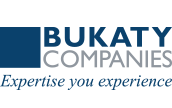The Wage and Hour Division of the Department of Labor (DOL) recently released revised regulations affecting implementation of the emergency paid sick leave and emergency family and medical leave provisions of the Families First Coronavirus Response Act (FFCRA). The amendments are effective September 16, 2020, through December 31, 2020.
The revisions are in response to an opinion issued by the U.S. District Court for the Southern District of New York in the case of New York v. U.S. Department of Labor. The DOL amendments are in response to provisions the Court ruled invalid. The revisions address five concerns raised by the legal challenge.
Work availability requirement
In what appears to be an oversight in the April 4, 2020, Temporary Rule, the DOL reaffirms that FFCRA leave is available only if one of the FFCRA qualifying reasons for leave is the sole basis for the employee’s inability to work and excludes paid leave for those where no work is available. For example, an employee who is already furloughed and whose child’s day care later closes is not eligible for paid leave.
Employer approval for intermittent leave
In the originally released Rule, with employer consent, employees can take intermittent leave under the emergency paid leave and emergency family and medical leave provisions.
The revised language confirms the need for employer approval for intermittent leave with some exceptions. As an example, an employee takes leave on Monday, Wednesday and Friday when a child’s school is closed for onsite learning. The child is onsite at school on Tuesday and Thursday. Each day that school is closed is a separate and new qualifying event. The separate qualifying events end when school is in session on Tuesday and Thursday. In this situation, employer approval does not apply when leave is in full-day increments to care for a child whose school is operating on alternate days because leave is not intermittent.
Conversely, when school is closed for an extended period, and the employee only wishes to take leave for a certain portion of that period, employer approval is required.
The amendment also clarifies that intermittent leave is not available at a worksite for an individual who takes paid sick leave due to COVID-19-related medical considerations. Such leave would pose undue health risks to others. However, employees who are teleworking may take intermittent leave with employer consent without posing risk of spreading COVID-19.
Definition of who is a health care provider
The FFCRA provides paid leave benefits to employers with fewer than 500 employees. However, employers could exclude health care providers and emergency responders from paid leave provisions. In the original Rule “health care provider” was defined broadly, including virtually any employee whose employer provides health care services.
In the revised regulation, the DOL defines “health care provider” to mean employees who are health care providers and other employees who are employed to provide diagnostic, preventive, treatment, or other services that are integrated with and necessary to the provision of patient care.
This revised definition focuses more on the duties of the individual rather than the identity of the employer. For example, maintenance, food service, personnel, billing, and similar support staff functions working for a health care provider can no longer be excluded from qualifying for FFCRA paid leave benefits.
Employee notification and documentation requirements
FFCRA permits employers to require reasonable notice prior to taking emergency paid leave and emergency family and medical leave.
The DOL amendments correct an inconsistency within the original regulations regarding when employees may be required to provide notice of a need to take emergency family and medical leave. The amended language requires notice of leave as soon as practicable.
Similarly, documentation is no longer needed “prior to” leave, but rather as soon as practicable, if the need for leave is foreseeable.
For additional information, contact your Bukaty benefits consultant at 913.345.0440.


